- Home
- Herman Melville
The Confidence-Man Page 13
The Confidence-Man Read online
Page 13
"I have confidence in distrust; more particularly as applied to you and your herbs."
"Well," with a forbearing smile, "that is frank. But pray, don't forget that when you suspect my herbs you suspect nature."
"Didn't I say that before?"
"Very good. For the argument's sake I will suppose you are in earnest. Now, can you, who suspect nature, deny, that this same nature not only kindly brought you into being, but has faithfully nursed you to your present vigorous and independent condition? Is it not to nature that you are indebted for that robustness of mind which you so unhandsomely use to her scandal? Pray, is it not to nature that you owe the very eyes by which you criticise her?"
"No! for the privilege of vision I am indebted to an oculist, who in my tenth year operated upon me in Philadelphia. Nature made me blind and would have kept me so. My oculist counterplotted her."
"And yet, sir, by your complexion, I judge you live an out-of-door life; without knowing it, you are partial to nature; you fly to nature, the universal mother."
"Very motherly! Sir, in the passion-fits of nature, I've known birds fly from nature to me, rough as I look; yes, sir, in a tempest, refuge here," smiting the folds of his bearskin. "Fact, sir, fact. Come, come, Mr. Palaverer, for all your palavering, did you yourself never shut out nature of a cold, wet night? Bar her out? Bolt her out? Lint her out?"
"As to that," said the herb-doctor calmly, "much may be said."
"Say it, then," ruffling all his hairs. "You can't, sir, can't." Then, as in apostrophe: "Look you, nature! I don't deny but your clover is sweet, and your dandelions don't roar; but whose hailstones smashed my windows?"
"Sir,'' with unimpaired affability, producing one of his boxes, "I am pained to meet with one who holds nature a dangerous character. Though your manner is refined your voice is rough; in short, you seem to have a sore throat. In the calumniated name of nature, I present you with this box; my venerable friend here has a similar one; but to you, a free gift, sir. Through her regularly-authorized agents, of whom I happen to be one, Nature delights in benefiting those who most abuse her. Pray, take it."
"Away with it! Don't hold it so near. Ten to one there is a torpedo in it. Such things have been. Editors been killed that way. Take it further off, I say."
"Good heavens! my dear sir —»
"I tell you I want none of your boxes," snapping his rifle.
"Oh, take it — ugh, ugh! do take it," chimed in the old miser; "I wish he would give me one for nothing."
"You find it lonely, eh," turning short round; "gulled yourself, you would have a companion."
"How can he find it lonely," returned the herb-doctor, "or how desire a companion, when here I stand by him; I, even I, in whom he has trust. For the gulling, tell me, is it humane to talk so to this poor old man? Granting that his dependence on my medicine is vain, is it kind to deprive him of what, in mere imagination, if nothing more, may help eke out, with hope, his disease? For you, if you have no confidence, and, thanks to your native health, can get along without it, so far, at least, as trusting in my medicine goes; yet, how cruel an argument to use, with this afflicted one here. Is it not for all the world as if some brawny pugilist, aglow in December, should rush in and put out a hospital-fire, because, forsooth, he feeling no need of artificial heat, the shivering patients shall have none? Put it to your conscience, sir, and you will admit, that, whatever be the nature of this afflicted one's trust, you, in opposing it, evince either an erring head or a heart amiss. Come, own, are you not pitiless?"
"Yes, poor soul," said the Missourian, gravely eying the old man — "yes, it is pitiless in one like me to speak too honestly to one like you. You are a late sitter-up in this life; past man's usual bed-time; and truth, though with some it makes a wholesome breakfast, proves to all a supper too hearty. Hearty food, taken late, gives bad dreams."
"What, in wonder's name — ugh, ugh! — is he talking about?" asked the old miser, looking up to the herb-doctor.
"Heaven be praised for that!" cried the Missourian.
"Out of his mind, ain't he?" again appealed the old miser.
"Pray, sir," said the herb-doctor to the Missourian, "for what were you giving thanks just now?"
"For this: that, with some minds, truth is, in effect, not so cruel a thing after all, seeing that, like a loaded pistol found by poor devils of savages, it raises more wonder than terror — its peculiar virtue being unguessed, unless, indeed, by indiscreet handling, it should happen to go off of itself."
"I pretend not to divine your meaning there," said the herb-doctor, after a pause, during which he eyed the Missourian with a kind of pinched expression, mixed of pain and curiosity, as if he grieved at his state of mind, and, at the same time, wondered what had brought him to it, "but this much I know," he added, "that the general cast of your thoughts is, to say the least, unfortunate. There is strength in them, but a strength, whose source, being physical, must wither. You will yet recant."
"Recant?"
"Yes, when, as with this old man, your evil days of decay come on, when a hoary captive in your chamber, then will you, something like the dungeoned Italian we read of, Note: [21.8] gladly seek the breast of that confidence begot in the tender time of your youth, blessed beyond telling if it return to you in age."
"Go back to nurse again, eh? Second childhood, indeed. You are soft."
"Mercy, mercy!" cried the old miser, "what is all this! — ugh, ugh! Do talk sense, my good friends. Ain't you," to the Missourian, "going to buy some of that medicine?"
"Pray, my venerable friend," said the herb-doctor, now trying to straighten himself, "don't lean quite so hard; my arm grows numb; abate a little, just a very little."
"Go," said the Missourian, "go lay down in your grave, old man, if you can't stand of yourself. It's a hard world for a leaner."
"As to his grave," said the herb-doctor, "that is far enough off, so he but faithfully take my medicine."
"Ugh, ugh, ugh! — He says true. No, I ain't — ugh! a going to die yet — ugh, ugh, ugh! Many years to live yet, ugh, ugh, ugh!"
"I approve your confidence," said the herb-doctor; "but your coughing distresses me, besides being injurious to you. Pray, let me conduct you to your berth. You are best there. Our friend here will wait till my return, I know."
With which he led the old miser away, and then, coming back, the talk with the Missourian was resumed.
"Sir," said the herb-doctor, with some dignity and more feeling, "now that our infirm friend is withdrawn, allow me, to the full, to express my concern at the words you allowed to escape you in his hearing. Some of those words, if I err not, besides being calculated to beget deplorable distrust in the patient, seemed fitted to convey unpleasant imputations against me, his physician."
"Suppose they did?" with a menacing air.
"Why, then — then, indeed," respectfully retreating, "I fall back upon my previous theory of your general facetiousness. I have the fortune to be in company with a humorist — a wag."
"Fall back you had better, and wag it is," cried the Missourian, following him up, and wagging his raccoon tail almost into the herb-doctor's face, "look you!"
"At what?"
"At this coon. Can you, the fox, catch him?"
"If you mean," returned the other, not unselfpossessed, "whether I flatter myself that I can in any way dupe you, or impose upon you, or pass myself off upon you for what I am not, I, as an honest man, answer that I have neither the inclination nor the power to do aught of the kind."
"Honest man? Seems to me you talk more like a craven."
"You in vain seek to pick a quarrel with me, or put my affront upon me. The innocence in me heals me."
"A healing like your own nostrums. But you are a queer man — a very queer and dubious man; upon the whole, about the most so I ever met."
The scrutiny accompanying this seemed unwelcome to the diffidence of the herb-doctor. As if at once to attest the absence of resentment, as well as to change the s
ubject, he threw a kind of familiar cordiality into his air, and said: "So you are going to get some machine made to do your work? Philanthropic scruples, doubtless, forbid your going as far as New Orleans for slaves?"
"Slaves?" morose again in a twinkling, "won't have 'em! Bad enough to see whites ducking and grinning round for a favor, without having those poor devils of niggers congeeing round for their corn. Though, to me, the niggers are the freer of the two. You are an abolitionist, ain't you?" he added, squaring himself with both hands on his rifle, used for a staff, and gazing in the herb-doctor's face with no more reverence than if it were a target. "You are an abolitionist, ain't you?"
"As to that, I cannot so readily answer. If by abolitionist you mean a zealot, I am none; but if you mean a man, who, being a man, feels for all men, slaves included, and by any lawful act, opposed to nobody's interest, and therefore, rousing nobody's enmity, would willingly abolish suffering (supposing it, in its degree, to exist) from among mankind, irrespective of color, then am I what you say."
"Picked and prudent sentiments. You are the moderate man, the invaluable understrapper of the wicked man. You, the moderate man, may be used for wrong, but are useless for right."
From all this," said the herb-doctor, still forgivingly, "I infer, that you, a Missourian, though living in a slave-state, are without slave sentiments."
"Aye, but are you? Is not that air of yours, so spiritlessly enduring and yielding, the very air of a slave? Who is your master, pray; or are you owned by a company?"
"My master?"
"Aye, for come from Maine or Georgia, you come from a slave-state, and a slave-pen, where the best breeds are to be bought up at any price from a livelihood to the Presidency. Abolitionism, ye gods, but expresses the fellow-feeling of slave for slave."
"The back-woods would seem to have given you rather eccentric notions," now with polite superiority smiled the herb-doctor, still with manly intrepidity forbearing each unmanly thrust, "but to return; since, for your purpose, you will have neither man nor boy, bond nor free, truly, then some sort of machine for you is all there is left. My desires for your success attend you, sir. - Ah!" glancing shoreward, "here is Cape Giradeau; Note: [21.9] I must leave you."
Chapter 22
CHAPTER XXII. IN THE POLITE SPIRIT OF THE TUSCULAN DISPUTATIONS. Note: [22.1]
— "'PHILOSOPHICAL INTELLIGENCE OFFICE' Note: [22.2] — novel idea! But how did you come to dream that I wanted anything in your absurd line, eh?"
About twenty minutes after leaving Cape Giradeau, the above was growled out over his shoulder by the Missourian to a chance stranger who had just accosted him; a round-backed, baker-kneed man, Note: [22.3] in a mean five-dollar suit, wearing, collar-wise by a chain, a small brass plate, inscribed P. I. O., and who, with a sort of canine deprecation, slunk obliquely behind.
"How did you come to dream that I wanted anything in your line, eh?"
"Oh, respected sir," whined the other, crouching a pace nearer, and, in his obsequiousness, seeming to wag his very coat-tails behind him, shabby though they were, "oh, sir, from long experience, one glance tells me the gentleman who is in need of our humble services."
"But suppose I did want a boy — what they jocosely call a good boy — how could your absurd office help me? — Philosophical Intelligence Office?"
"Yes, respected sir, an office founded on strictly philosophical and physio —»
"Look you — come up here — how, by philosophy or physiology either, make good boys to order? Come up here. Don't give me a crick in the neck. Come up here, come, sir, come," calling as if to his pointer. "Tell me, how put the requisite assortment of good qualities into a boy, as the assorted mince into the pie?"
"Respected sir, our office —»
"You talk much of that office. Where is it? On board this boat?"
"Oh no, sir, I just came aboard. Our office —»
"Came aboard at that last landing, eh? Pray, do you know a herb-doctor there? Smooth scamp in a snuff-colored surtout?"
"Oh, sir, I was but a sojourner at Cape Giradeau. Though, now that you mention a snuff-colored surtout, I think I met such a man as you speak of stepping ashore as I stepped aboard, and 'pears to me I have seen him somewhere before. Looks like a very mild Christian sort of person, I should say. Do you know him, respected sir?"
"Not much, but better than you seem to. Proceed with your business."
With a low, shabby bow, as grateful for the permission, the other began: "Our office —»
"Look you," broke in the bachelor with ire, "have you the spinal complaint? What are you ducking and groveling about? Keep still. Where's your office?"
"The branch one which I represent, is at Alton, Note: [22.4] sir, in the free state we now pass," (pointing somewhat proudly ashore).
"Free, eh? You a freeman, you flatter yourself? With those coat-tails and that spinal complaint of servility? Free? Just cast up in your private mind who is your master, will you?"
"Oh, oh, oh! I don't understand — indeed — indeed. But, respected sir, as before said, our office, founded on principles wholly new —»
"To the devil with your principles! Bad sign when a man begins to talk of his principles. Hold, come back, sir; back here, back, sir, back! I tell you no more boys for me. Nay, I'm a Mede and Persian. Note: [22.5] In my old home in the woods I'm pestered enough with squirrels, weasels, chipmunks, skunks. I want no more wild vermin to spoil my temper and waste my substance. Don't talk of boys; enough of your boys; a plague of your boys; chilblains on your boys! As for Intelligence Offices: I've lived in the East, and know 'em. Swindling concerns kept by low-born cynics, under a fawning exterior wreaking their cynic malice upon mankind. You are a fair specimen of 'em."
"Oh dear, dear, dear!"
"Dear? Yes, a thrice dear purchase one of your boys would be to me. A rot on your boys!"
"But, respected sir, if you will not have boys, might we not, in our small way, accommodate you with a man?"
"Accommodate? Pray, no doubt you could accommodate me with a bosom-friend too, couldn't you? Accommodate! Obliging word accommodate: there's accommodation notes now, where one accommodates another with a loan, and if he don't pay it pretty quickly, accommodates him with a chain to his foot. Accommodate! God forbid that I should ever be accommodated. Note: [22.6] No, no. Look you, as I told that cousin-german of yours, the herb-doctor, I'm now on the road to get me made some sort of machine to do my work. Machines for me. My cider-mill-does that ever steal my cider? My mowing-machine — does that ever lay a-bed mornings? My corn-husker — does that ever give me insolence? No: cider-mill, mowing-machine, corn-husker — all faithfully attend to their business. Disinterested, too; no board, no wages; yet doing good all their lives long; shining examples that virtue is its own reward — the only practical Christians I know."
"Oh dear, dear, dear, dear!"
"Yes, sir: — boys? Start my soul-bolts, what a difference, in a moral point of view, between a corn-husker and a boy! Sir, a corn-husker, for its patient continuance in well-doing, Note: [22.7] might not unfitly go to heaven. Do you suppose a boy will?"
"A corn-husker in heaven! (turning up the whites of his eyes). Respected sir, this way of talking as if heaven were a kind of Washington patent-office museum — oh, oh, oh! — as if mere machine-work and puppet-work went to heaven — oh, oh, oh! Things incapable of free agency, to receive the eternal reward of well-doing — oh, oh, oh!"
"You Praise-God-Barebones you, Note: [22.8] what are you groaning about? Did I say anything of that sort? Seems to me, though you talk so good, you are mighty quick at a hint the other way, or else you want to pick a polemic quarrel with me."
"It may be so or not, respected sir," was now the demure reply; "but if it be, it is only because as a soldier out of honor is quick in taking affront, so a Christian out of religion is quick, sometimes perhaps a little too much so, in spying heresy."
"Well," after an astonished pause, "for an unaccountable pair, you and the herb-doctor oug
ht to yoke together."
So saying, the bachelor was eying him rather sharply, when he with the brass plate recalled him to the discussion by a hint, not unflattering, that he (the man with the brass plate) was all anxiety to hear him further on the subject of servants.
"About that matter," exclaimed the impulsive bachelor, going off at the hint like a rocket, "all thinking minds are, now-a-days, coming to the conclusion — one derived from an immense hereditary experience — see what Horace and others of the ancients say of servants Note: [22.9] — coming to the conclusion, I say, that boy or man, the human animal is, for most work-purposes, a losing animal. Can't be trusted; less trustworthy than oxen; for conscientiousness a turn-spit dog excels him. Hence these thousand new inventions — carding machines, horse-shoe machines, tunnel-boring machines, reaping machines, apple-paring machines, boot-blacking machines, sewing machines, shaving machines, run-of-errand machines, dumb-waiter machines, and the Lord-only-knows-what machines; all of which announce the era when that refractory animal, the working or serving man, shall be a buried by-gone, a superseded fossil. Shortly prior to which glorious time, I doubt not that a price will be put upon their peltries as upon the knavish possums,' especially the boys. Yes, sir (ringing his rifle down on the deck), I rejoice to think that the day is at hand, when, prompted to it by law, I shall shoulder this gun and go out a boy-shooting."
"Oh, now! Lord, Lord, Lord! — But our office, respected sir, conducted as I ventured to observe —»
"No, sir," bristlingly settling his stubble chin in his coon-skins. "Don't try to oil me; the herb-doctor tried that. My experience, carried now through a course — worse than salivation — a course of five and thirty boys, proves to me that boyhood is a natural state of rascality."
"Save us, save us!"
"Yes, sir, yes. My name is Pitch; I stick to what I say. I speak from fifteen years' experience; five and thirty boys; American, Irish, English, German, African, Mulatto; not to speak of that China boy sent me by one who well knew my perplexities, from California; and that Lascar boy from Bombay. Thug! I found him sucking the embryo life from my spring eggs. All rascals, sir, every soul of them; Caucasian or Mongol. Amazing the endless variety of rascality in human nature of the juvenile sort. I remember that, having discharged, one after another, twenty-nine boys — each, too, for some wholly unforeseen species of viciousness peculiar to that one peculiar boy — I remember saying to myself: Now, then, surely, I have got to the end of the list, wholly exhausted it; I have only now to get me a boy, any boy different from those twenty-nine preceding boys, and he infallibly shall be that virtuous boy I have so long been seeking. But, bless me! this thirtieth boy — by the way, having at the time long forsworn your intelligence offices, I had him sent to me from the Commissioners of Emigration, all the way from New York, culled out carefully, in fine, at my particular request, from a standing army of eight hundred boys, the flowers of all nations, so they wrote me, temporarily in barracks on an East River island — I say, this thirtieth boy was in person not ungraceful; his deceased mother a lady's maid, or something of that sort; and in manner, wily, in a plebeian way, a perfect Chesterfield; Note: [22.10] very intelligent, too — quick as a flash. But, such suavity! Please sir! please sir!' always bowing and saying, Please sir.' In the strangest way, too, combining a filial affection with a menial respect. Took such warm, singular interest in my affairs. Wanted to be considered one of the family — sort of adopted son of mine, I suppose. Of a morning, when I would go out to my stable, with what childlike good nature he would trot out my nag, Please sir, I think he's getting fatter and fatter.' But, he don't look very clean, does he?' unwilling to be downright harsh with so affectionate a lad; and he seems a little hollow inside the haunch there, don't he? or no, perhaps I don't see plain this morning.' 'Oh, please sir, it's just there I think he's gaining so, please.' Polite scamp! I soon found he never gave that wretched nag his oats of nights; didn't bed him either. Was above that sort of chambermaid work. No end to his willful neglects. But the more he abused my service, the more polite he grew."

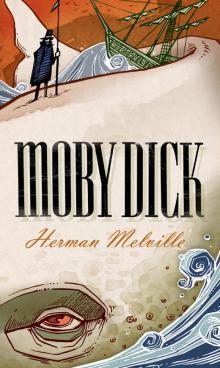 Moby Dick; Or, The Whale
Moby Dick; Or, The Whale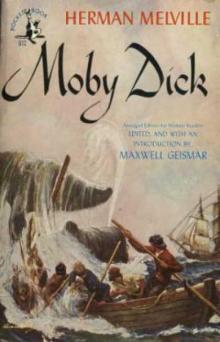 Moby Dick
Moby Dick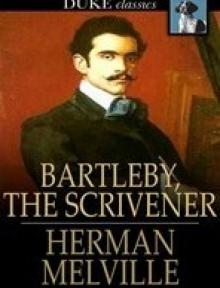 Benito Cereno and Bartleby the Scrivener
Benito Cereno and Bartleby the Scrivener Israel Potter: His Fifty Years of Exile (Annotated Edition)
Israel Potter: His Fifty Years of Exile (Annotated Edition) Billy Budd and the Piazza Tales
Billy Budd and the Piazza Tales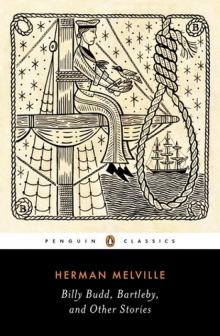 Billy Budd, Bartleby, and Other Stories
Billy Budd, Bartleby, and Other Stories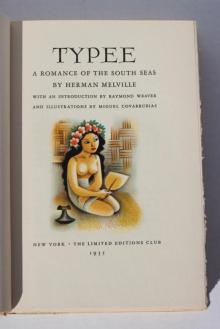 Typee: A Romance of the South Seas
Typee: A Romance of the South Seas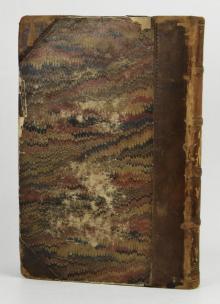 Omoo: Adventures in the South Seas
Omoo: Adventures in the South Seas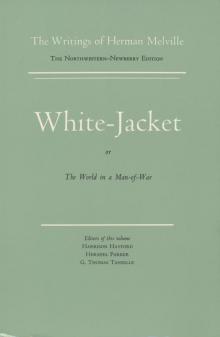 White Jacket; Or, The World on a Man-of-War
White Jacket; Or, The World on a Man-of-War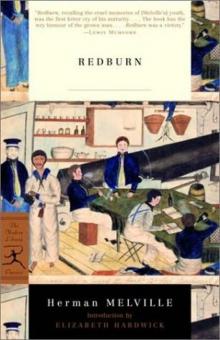 Redburn. His First Voyage
Redburn. His First Voyage Mardi: and A Voyage Thither, Vol. II
Mardi: and A Voyage Thither, Vol. II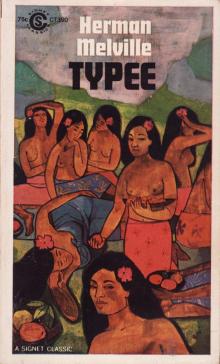 Typee
Typee The Paradise of Bachelors and the Tartarus of Maids
The Paradise of Bachelors and the Tartarus of Maids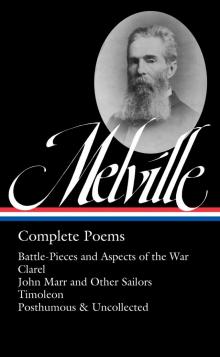 Herman Melville- Complete Poems
Herman Melville- Complete Poems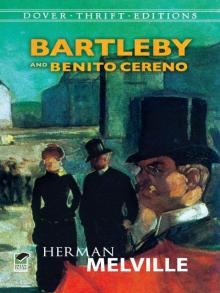 Bartleby and Benito Cereno
Bartleby and Benito Cereno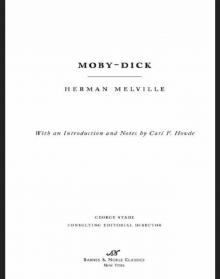 Moby-Dick (Barnes & Noble Classics Series)
Moby-Dick (Barnes & Noble Classics Series) Mardi and a Voyage Thither
Mardi and a Voyage Thither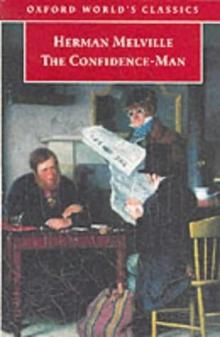 The Confidence-Man
The Confidence-Man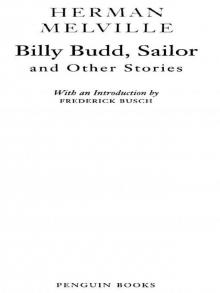 Billy Budd and Other Stories
Billy Budd and Other Stories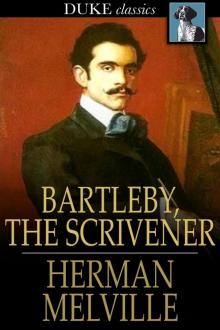 Bartleby the Scrivener
Bartleby the Scrivener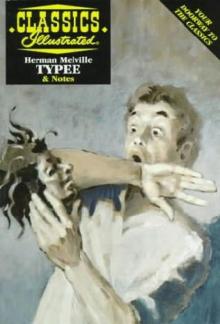 Typee: A Romance of the South Sea
Typee: A Romance of the South Sea I and My Chimney
I and My Chimney Billy Budd
Billy Budd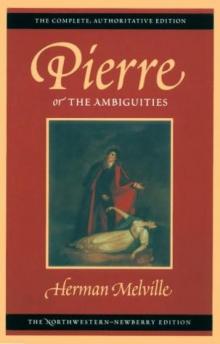 Pierre, Or the Ambiguities
Pierre, Or the Ambiguities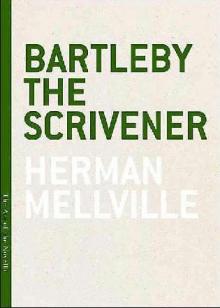 Bartleby, The Scrivener A Story of Wall-Street
Bartleby, The Scrivener A Story of Wall-Street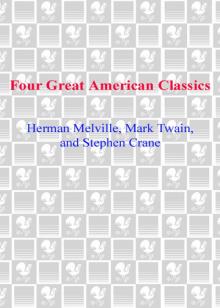 Four Great American Classics
Four Great American Classics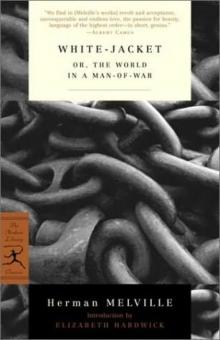 White Jacket or, The World on a Man-of-War
White Jacket or, The World on a Man-of-War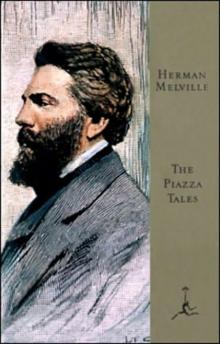 The Piazza Tales
The Piazza Tales Israel Potter. Fifty Years of Exile
Israel Potter. Fifty Years of Exile